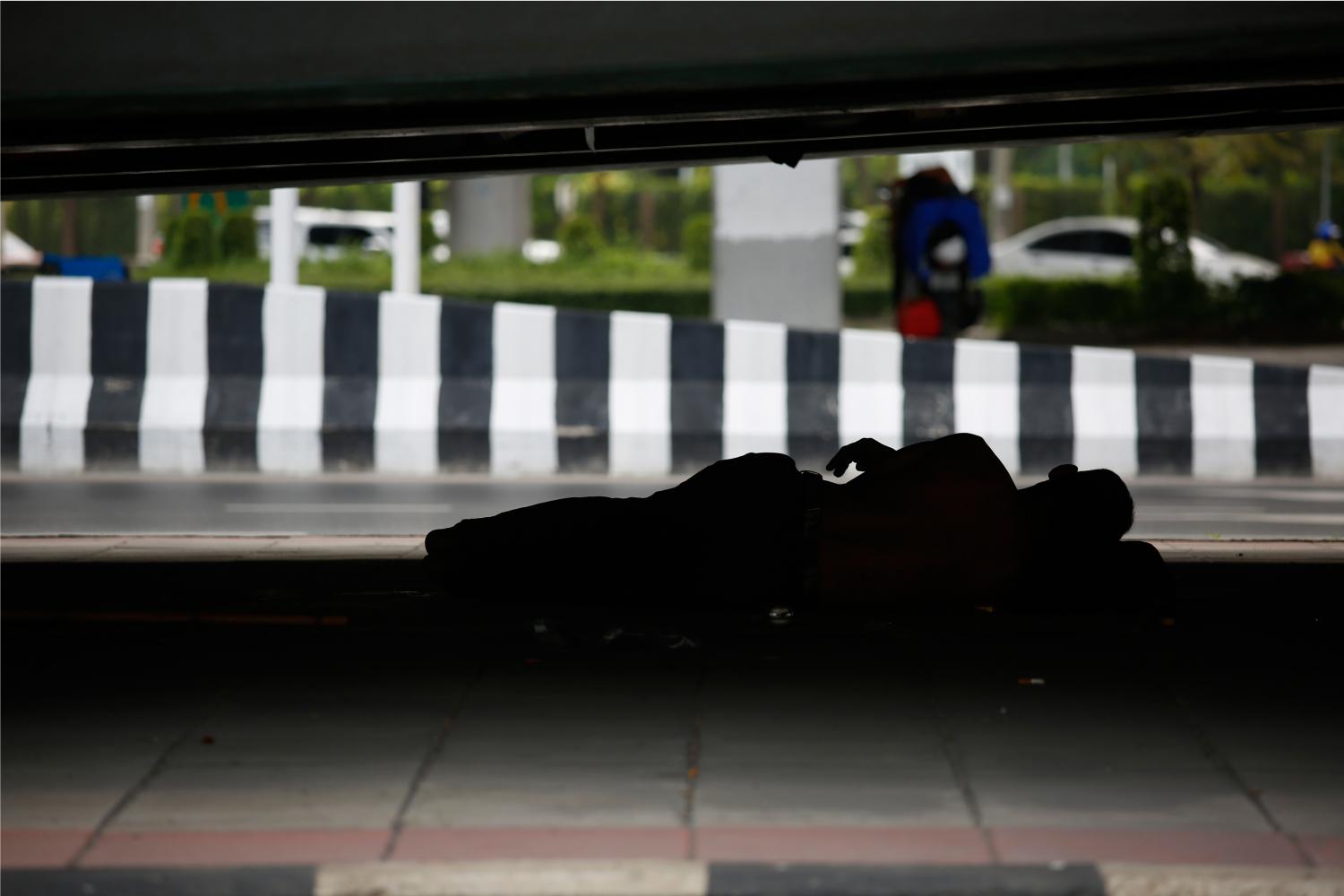
With Bangkok's governor election just around the corner, most candidates have highlighted several issues in their campaigns. Yet one topic remains mostly unaddressed -- the homeless.
Adchara Saravari, secretary-general of the Issarachon Foundation, has worked on the issue for more than 20 years. She urges governor candidates to endorse policies giving homeless people access to their rights and welfare.
Speaking to the Bangkok Post, she said the Covid-19 pandemic has exacerbated the homeless problem. Many people have become unemployed and cannot pay their rent. The situation has forced more people onto the streets.
"Arresting homeless people is not a solution. The Bangkok Metropolitan Administration [BMA] should have a policy to let homeless people gain access to welfare benefits. Yet most homeless are not aware of the rights they have because they do not have access to information," she said.
The BMA should also promote a policy for social welfare organisations to employ homeless people so that they can earn a living. They need to be informed that there are job opportunities available for them, said Ms Adchara.
The more money they make, the sooner they can leave the state of homelessness, she said. In addition, well-planned solutions for homelessness can reduce City Hall's costs.
"Our foundation once proposed the BMA should set up encampments under expressways and shelters in temples for the homeless," she said.
Lastly, Ms Adchara said some homeless people are psychiatric patients who need mental care. However, many cannot access public healthcare because they do not have ID cards or house registration documents.
According to the Issarachon Foundation, Bangkok has 4,500 homeless people, of whom 2,623 are women and 1,855 are men.
Wiroj Lakkhanaadisorn, who is running in the governor election as a candidate of the Move Forward Party (MFP), viewed homelessness as an elephant in the room.
"Some homeless people might not have a right to vote because they do not have ID cards, but it is undeniable that they are also citizens the BMA needs to take care of," said Mr Wiroj.
He categorised homeless people into three groups: unintentionally homeless, intentionally homeless and homeless people with mental disorders.
For the unintentional group, Mr Wiroj said they make up most homeless people in Bangkok today. He proposed the BMA should offer employment and shelters to them as quickly as possible or else the group could become permanently homeless.
The BMA likewise should work with NGOs that could help find jobs for them.
The second group required a different approach, Mr Wiroj said. Even though some people deliberately enter a state of homelessness, they still must be provided basic rights as Thai citizens including social welfare such as universal healthcare coverage, and a disability or an old-age allowance.
Lastly, the BMA should work with NGOs and the Ministry of Social Development and Human Security to reach homeless people who have mental illnesses and offer them psychiatric care.
"We need to understand the conditions of the homeless from every group. The BMA has many resources that can help them while NGOs have insights into homeless people. Together we can make the most of our capacity to improve the lives of the homeless," Mr Wiroj added.
Rosana Tositrakul, a former senator and an independent candidate for governor, said the BMA has little experience when it comes to tackling the issue, so NGOs should take part in endorsing policies.
"Many of the homeless prefer freedom and independence. However, the BMA has to provide basic needs for them. All 50 districts in Bangkok need to gather the homeless to categorise them. I've proposed that the BMA should grant each district a one-million-baht budget for homeless people to offer loans to build their careers," said Ms Rosana.
Suchatvee Suwansawat, the Democrat Party candidate, said the best start is to embrace quality. People living in Bangkok need basic facilities regardless of their state of homelessness.
"Those who have become homeless because of unemployment must have access to shelters and temporary jobs. For those who are suffering from mental illness, the BMA should look after them to ensure they are also a part of Bangkok," he said.
